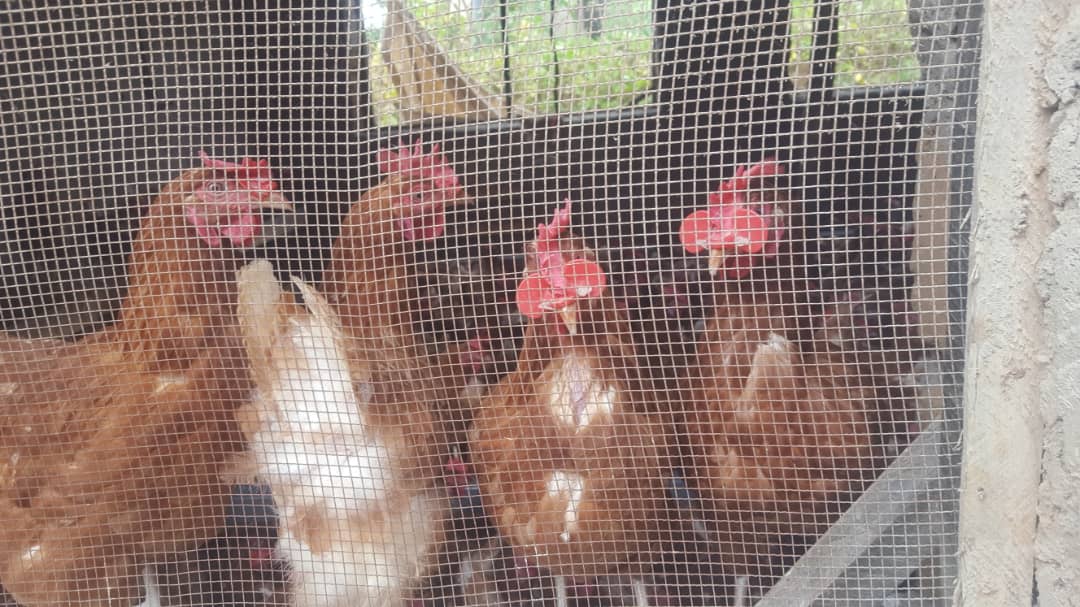RAWO Empowers Poultry Farmers in Bugesera District to Uphold Animal welfare and Boost Production

Poultry farmers in Bugesera district have embarked on a journey to champion animal welfare, particularly in the context of poultry farming and production. With the support of the Rwanda Animal Welfare Organisation (RAWO), their dedicated efforts to uphold the welfare and well-being of their chickens have yielded promising results.
RAWO, led by Dr. Jean Claude Masengesho, held a crucial workshop with poultry farmers entitled’’ Raising poultry welfare and production on Wednesday, May 24th, to educate and emphasize the importance of prioritizing chicken welfare. This awareness campaign served as a platform to share knowledge and insights on proper care practices, ultimately leading to improved productivity.
“RAWO is deeply committed to enhancing the animal production sector through various programs. Recently, we have ventured into chicken farming, providing trainings, promoting best poultry production systems practices, and educating farmers on responsible animal ownership. Our focus is on empowering poultry farmers, as we have identified a lack of understanding of efficient poultry welfare among many Rwandans. As an NGO, we strongly believe in advancing the wellbeing of humans and animals by providing support and resources while advocating for chicken welfare in line with the Rwandan government’s initiative to enhance small-stock production. Recognizing the intrinsic worth of hens and safeguarding their welfare, including humane treatment, is crucial,” explained Dr. Masengesho.

RAWO Representatitive Dr. Jean Claude Masengesho
o assess the current state of poultry welfare at the district and national levels, RAWO has initiated meetings with district veterinarians. Through these interactions, RAWO aims to address existing challenges, explore opportunities, mitigate risks, and identify concerns that require immediate attention. The recent workshop in Bugesera district, which brought together over 40 poultry farmers, serves as a testament to RAWO’s commitment.
While not widely known, the Five Freedoms of animals form the core of animal welfare, and RAWO emphasizes their importance. These freedoms include freedom from hunger and thirst, freedom from discomfort, freedom from pain, injuries, and diseases, freedom to express normal behaviour, and freedom from fear and distress.
During the awareness campaign, farmers received theoretical and practical knowledge and skills on implementing and fulfilling the Five Freedoms of animals. They had the opportunity to being visited by RAWO in Mayange, witnessing firsthand the impact of these freedoms on livestock production. Such initiatives align with the government’s goal of social economic transformation and poverty reduction.
Farmers firmly believe that acquiring this knowledge equips them to advocate for the welfare of their chickens, leading to enhanced productivity and sustainable chickens farming practices.
Nisengwe Angelique, a resident of Kagenge in Mayange Sector, expressed optimism about the benefits of this training. “Previously, we had some basic knowledge, but we failed to implement it correctly or professionally, and we didn’t give much consideration to the well-being of animals. However, we now recognize the necessity of respecting their welfare that chickens are sentient beings. We have been taught that they should be provided with adequate nutrition, proper rest, and quality feeds, She said
As a result, we have made a commitment to share this knowledge with others. Witnessing individuals mistreating animals deeply troubles us, but we have learned about regulations that safeguard their well-being.” She added

During workshop
Jean Uwayisaba, a poultry farmer who raises 4,000 laying hens, expressed his gratitude for the knowledge gained during the training. He acknowledged the significant impact it would have on his breeding practices.
“Regarding the use of veterinary drugs, I will exercise caution to ensure that I don’t administer them to the chickens in a way that may affect the quality of their eggs for human consumption and contributing to Antimicrobial resistance. I will strive to be practice responsible use of antibiotics, especially giving antibiotics under veterinary supervision is present. I will no longer treat my chickens as I did in the past

During the awareness campaign, farmers received theoretical and practical knowledge and skills on implementing and fulfilling the Five Freedoms of animals
Through the training, farmers have gained a deeper understanding of chicken welfare, biosecurity and preventive measures to ensure their well-being. However, they also observed instances of mistreatment by caretakers, emphasizing the importance of ongoing education on animal welfare. Farmers anticipate positive outcomes, including increased production, as they continue implementing these best humane farming practices.

The welfare of chickens is a concern for RAWO
RAWO’s program to enforce and advance animal welfare and boost poultry production spans various districts, including Kicukiro, Gasabo, Bugesera, Nyarugenge, Rulindo, Gakenke, Musanze, Nyabihu, Rubavu, and Kamonyi. By equipping farmers with knowledge, RAWO strives to create a sustainable and compassionate approach to poultry farming in Rwanda.
